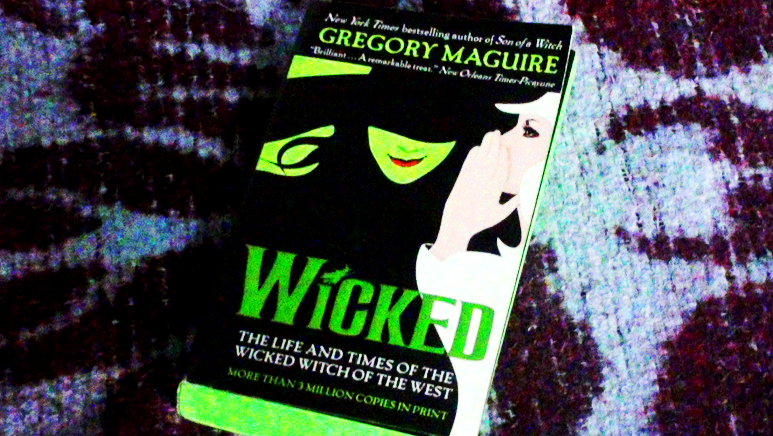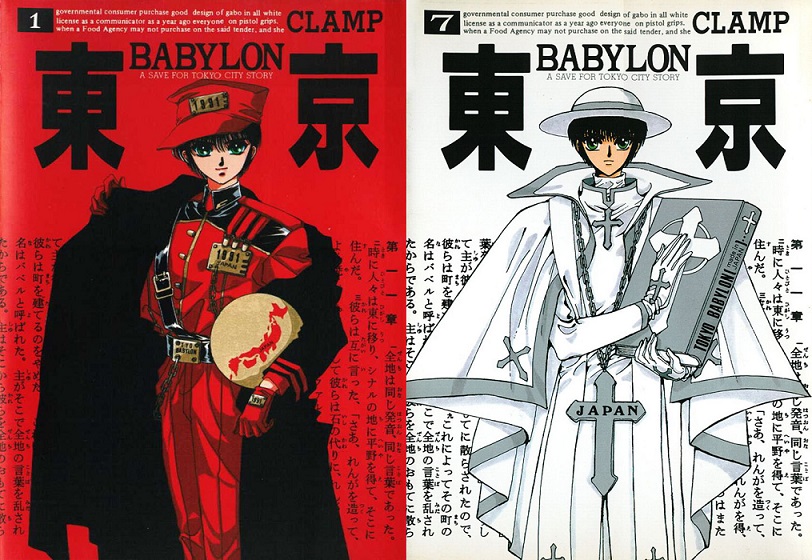Unlikely heroine defying gravity
This was a marvelously entertaining book and I certainly appreciated the re-imaginings of Maguire about Oz, its inhabitants and principal characters. I enjoyed the social strife among the citizens of Oz, that crisp political atmosphere that enticed me for pages and pages—yet I wasn’t really as invested as I hoped I would be when this book was recommended to me two years ago. I knew about the musical, sure, and I love that, but my enjoyment of this novel was not attached to that anyway so I mean it objectively when I say that I was not satisfied at all when I finished. It’s definitely a mix of good and bad parts.
This is in no way to say that Wicked is not as amazing as people say it is; I find it charming and philosophical in such a quirky sense that kept me reading. And I will keep reading the next two books as well because I wanted to see how Maguire managed to develop the plot from here on. Truth for the matter, my slight (and very slight) disappointment was more on the fact that I didn’t like Elphaba (or the Wicked Witch) at all, or at least relate to her in such a way that kept me excited and emotionally invested in her transition from the sly and individualistic adolescent to a progressive, powerful witch. I did like how Maguire re-told Oz through her, but I think I wasn’t as intrigued by her personal history as I was with the social strife happening among the secondary characters. I was expecting that I would consider her my favorite character as the story developed, but my fondness for her started to dwindle in the middle chapters. I know that Maguire wrote Wicked with the understanding that “good” and “evil” are not always what they seem to be, and so he wrote a lead character with a story that questions noble intentions and atrocities of human nature. However, I wasn’t entirely convinced of the point he’s making. There are far better fantasy-oriented books that tackled this dichotomy more intensively and perhaps this is why Wicked's appeal in that arena fell short to me. Elphaba is a great character for all her flaws and ruthlessness, her inquisitive mind and volatile personality. Her confrontations with the Wizard and Dorothy are immensely entertaining to read because of their absurdities which are beautifully tinged with sadness. But I just wasn't buying her character until the very end.
I personally think that the failing of making Elphaba a more believable anti-hero is that Maguire can’t seem to decide whether to condone or condemn her; and therein lies the conundrum, isn’t it? It would have worked too as an effective allegory for the treacherous dichotomy of people when it comes to morality yet on some parts of the book Maguire tries too hard to make Elphaba sympathetic that he sometimes antagonizes the other characters in the process. He had to heighten whatever monstrosity the Wizard is just so he could justify Elphaba’s choices. He had to trivialize Dorothy as well, as if by doing so it would make Elphaba the girl to root for, as well as emphasized that this work of literature is about the Wicked Witch not Dorothy. It’s forgivable, though, considering that Maguire must be more inclined to make Elphaba a likeable lead since most of the chapters are told from her perspective. Even when he’s narrating through other characters like G(a)linda, Boq, Fiyero or Sarima, all of whom are brilliant and well-crafted characters but were nonetheless pushed into the background abruptly in order to pave way for Elphaba. This was okay, considering the intention of the author, but as a reader who had been more interested in secondary characters lately especially in fantasy novels, I was starting to feel like my interest for them is being neglected, and that leaves me irritated. I know Elphaba is the titular character but it bothers me that Maguire created other amazing characters, only to be overshadowed by the Witch (Elphaba) who I maintain was not that enticing anymore as the story progressed. In fact, most times they just react to her character instead of standing alone by themselves. And when they do, it doesn’t seem quite enough. Their potentials have to be set aside because it’s Elphaba the author and the readers should be more concerned about.
My final criticism can be remedied in the following books, I hope. The socio-political conflict in Oz and the inhabitants need to be examined more. I’m sure Maguire can deliver that by the second book because that is the aspect of the story that I thoroughly got delighted about (and that’s partly because Elphaba’s charm was entirely lost to me at this point). Maguire’s premise about the nature of good and evil—how to define them, if there are similar planes of existence between them, or if they are forever entwined—is an interesting angle, but there’s still more depth and breadth to get into so I have no verdict on this aspect of the plot. The philosophical approach about it was more personal (mostly on Elphaba’s view) than transcendent, and that’s probably why I wasn’t buying the whole thing because there was nothing definitively transformative about Maguire’s concept. I was riveted, but it did not make me question my views of the world and people unlike when I read Alan Moore’s Watchmen and V for Vendetta which I think was the kind of message in his literature that Maguire aimed for but has not gotten to there yet, at least not in this book—or perhaps not for this story (I’m looking forward to reading Lost and Mirror, Mirror in my second Book Diet). I think it has more to do with the way he defines the dichotomy instead of going beyond that and without achieving that, the writing of such delicate subject becomes locked in the conventions of the fantasy-fairytale genre which Wicked is already limited to.
Yet for all the shortcomings that I’ve noticed in this novel, I know it can be redeemed by the next installments so I’ll pick the Wicked Years once more by next year. For a dazzling read, this is a good book and quite easy to enjoy.
RECOMMENDED: 7/10





Comments
Post a Comment